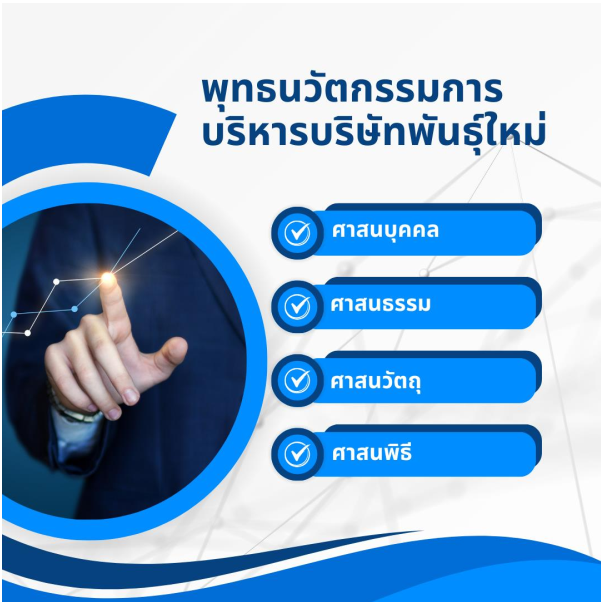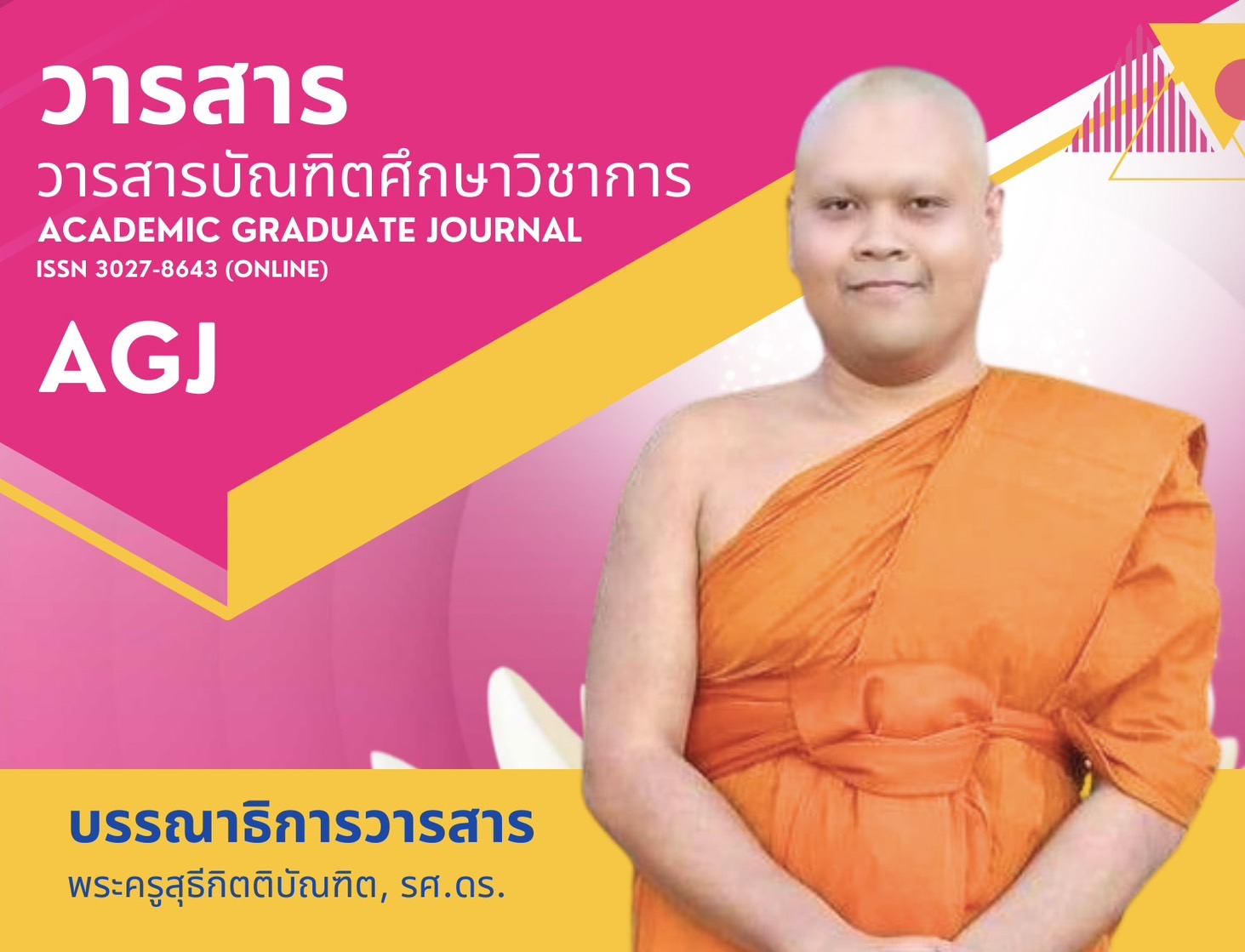BUDDHIST INNOVATION IN MANAGING A NEW BREED OF COMPANY
Abstract
This academic article focuses on Buddhist-inspired management innovations in modern-day companies, encompassing four key aspects: 1. Personnel Buddhism: This involves managing individuals to adopt a new mindset, integrating technological knowledge and skills to propel the organization forward effectively. 2. Ethical Buddhism: This entails managing operations with morality or goodness, adhering to the principles of metta (loving-kindness), karuna (compassion), mudita (sympathetic joy), and upekkha (equanimity). 3. Material Buddhism: This refers to quality management or the utilization of technology. It involves incorporating digital technology into all aspects of the business or integrating technology with customer needs (Digital Transformation) to respond to consumer behavior and gain a competitive edge in the market. 4. Ritual Buddhism: This involves managing operations with qualities or readiness, utilizing Marketing Automation and AI comprehensively. It involves collecting data from various sources and consolidating them all, allowing for full-loop connection of data. When everyone makes decisions using the same dataset, complete data can facilitate personalized marketing. Therefore, success depends on advancing the use of AI to increase marketing efficiency at a lower cost.
References
ประชาชาติธุรกิจ ออนไลน์. (2565). ธุรกิจยักษ์ใหญ่เร่งทรานส์ฟอร์ม สร้างคนพันธุ์ใหม่ รับสมรภูมิเปลี่ยน. สืบค้น 21 มีนาคม จาก https://www.prachachat.net/sd-plus/sdplus-sustainability/news-31306.
ผู้จัดการออนไลน์. (2565). YDM ผ่าองค์กรไทย 4 สายพันธุ์บนโลก Marketing Transformation ยุคดิจิทัล แนะทริคติดสปีด ชี้ Data และ MarTech ฟันเฟืองสำคัญขับเคลื่อนแบรนด์. สืบค้น 21 มีนาคม จาก https://mgronline.com/smes/detail/9660000062562.
พระเทพวัชรบัณฑิต (สมจินต์ สมุมาปญโญ). (2565). มจร ชู “พุทธนวัตกรรม” เพื่อการเรียนรู้และพัฒนายั่งยืน. สืบค้น 21 มีนาคม จาก: https://d.dailynews.co.th/education/ 828960/.
พระราชปริยัติกวี. (2565). ประชุมวิชาการระดับชาติ ชูพุทธนวัตกรรมของมหาจุฬาฯ แก้ปัญหาสังคม. สืบค้น 21 มีนาคม จาก: https://www.banmuang.co.th/news/education /124551.
พระสมุหสายยันต วิสารโท (โลหิตดี) และพระมหามิตร ฐิตปฺโญ (วันยาว). (2564). พุทธนวัตกรรมในพระพุทธศาสนา : กรณีศึกษาพุทธศิลปดานเสนาสนะ. วารสารปญญาปณิธาน. 6(2) : 15-28.
มหาวิทยาลัยมหาจุฬาลงกรณราชวิทยาลัย. (2539). พระไตรปิฎกฉบับภาษาไทย ฉบับมหาจุฬาลงกรณราชวิทยาลัย. กรุงเทพมหานคร : โรงพิมพ์มหาจุฬาลงกรณราชวิทยาลัย.
สถาบันวิทยาการประกอบการแห่งอโยธยา. (2565). 11 เทคโนโลยีแห่งยุคดิจิทัล. สืบค้น 21 มีนาคม จาก: https://www.iesa.ac.th/11เทคโนโลยีแห่งยุคดิจิท/#.
สุชาติ กิจธนะเสรี. (2548). องค์การและนวัตกรรมในองค์การ. กรุงเทพมหานคร : มหาวิทยาลัยรามคำแหง.
IDMCOUNCIL. (2565). ปรับธุรกิจอย่างไร ให้ธุรกิจอยู่รอดในยุคดิจิทัล. สืบค้น 21 มีนาคม จาก: https://d.dailynews.co.th/education/ 828960/.
Morton, J.A. (1971). Organizing for innovation;: A systems approach to technical management. New York: McGraw-Hill.
Roger, E. M. and F. F. Shoemaker. 1971. Communication of Innovation. 2nded. New York: The Free Press.
Thomas, Hughes. (1987). The Social Construction of Technological Systems: New Directions in the sociology and History of Technology. Cambridge: M.I.T. Press.







